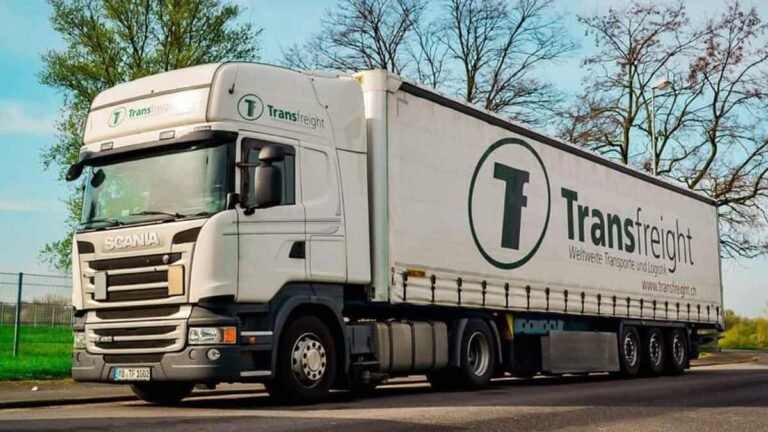Transfreight Automotive Logistics Europe, a UK-based freight transport company, has been placed under members’ voluntary liquidation by its parent company, Yusen Logistics. The application was filed on July 12, 2019, according to UK government documents on the Companies House website, the official government register of companies.
Motortransport.com reported that the company has approximately 90 commercial vehicles and 200 trailers, operating out of Burnaston, Derby, England.
According to UK law, a members’ voluntary liquidation allows a company to pay off its debts while ceasing operations. The liquidation notice was published in the UK’s official registry, The Gazette, on 24 July 2019. It indicated that the company intended to repay all creditors within two months of 30 August 2019.
The liquidation process is being handled by KPMG’s London-based restructuring firm.
Transfreight’s largest customer was the Toyota Motor Manufacturing plant in Burnaston, which attracted Yusen Logistics to the company in 2017. Both companies share Toyota as a customer. Yusen acquired Transfreight that year for an undisclosed sum.
“This business provides an excellent fit for Yusen Logistics, with shared customers and service offerings, but with a regional focus that complements Yusen’s infrastructure,” said Ian Fitch, Yusen Logistics Europe regional director, at the time.
Both companies provided docking, transportation and manufacturing logistics services. She added that Yusun saw the acquisition as a way to expand its presence in France in addition to building a larger infrastructure for freight collection points in Western Europe.
Earlier this year, Toyota warned that a no-deal Brexit could lead to the suspension or even closure of its UK car plants, including the one in Burnaston, due to expected long delays in customs checks for parts. Coming from other European countries. Toyota factories operate on a just-in-time inventory schedule.
“If even one component does not arrive, we will have to stop production,” Toyota executive vice president Shigeki Tomoyama told the Nikkei Asian Review.
It is not clear whether uncertainty due to Brexit played any role in Transfreight’s closure. Transfreight’s liquidation notice did not specify a reason for the closure.
Even as the company was shutting down Transfreight, Yusen was expanding. The company announced a new branch office in Koper, Slovenia. Yusen said the expansion of Cooper will allow it to benefit from the growth in shipping in the region. She said the Port of Koper handles the highest volume of the three ports on the Adriatic Sea, doubling in volume in the past 10 years, and runs 62 trains in the region daily.
Fleet closures increase
Carrier closures in the United States are becoming more common as economic conditions fluctuate.
On July 30, Terrill Transportation in Livermore, California, ceased operations. This fleet included 30 trucks and 36 company drivers as well as 12 owners and operators. Schneider National (NYSE: SNDR) announced that it will close its first-to-last-mile business due to lack of profitability. This closure put nearly 800 drivers out of work.
Three of the largest closures so far in 2019 were New England Motor Freight, Falcon and LME.
LME was a 400-truck less-than-truckload (LTL) carrier based in Minnesota. The LME’s closure may be in part due to a National Labor Relations Board dispute involving Lakeville Motor Express, a transportation company that closed in 2016. The board has called the LME “an alter ego” for Lakeville.
Falcon’s closure was linked to alleged mismanagement, according to two former company executives. These FreightWaves executives said the company was struggling to meet payroll even after selling to a private equity firm.
The closure of New England Motor Freight in February shook the Northeast LTL market. With roots dating back 100 years, the 19th largest LTL carrier in the country with more than 1,300 drivers had been struggling financially for some time, but was not expected to close. But on February 12, the company concluded that after two years of losses, the combination of high labor costs and a “severe” shortage of drivers made it unsustainable to continue as a going concern.





